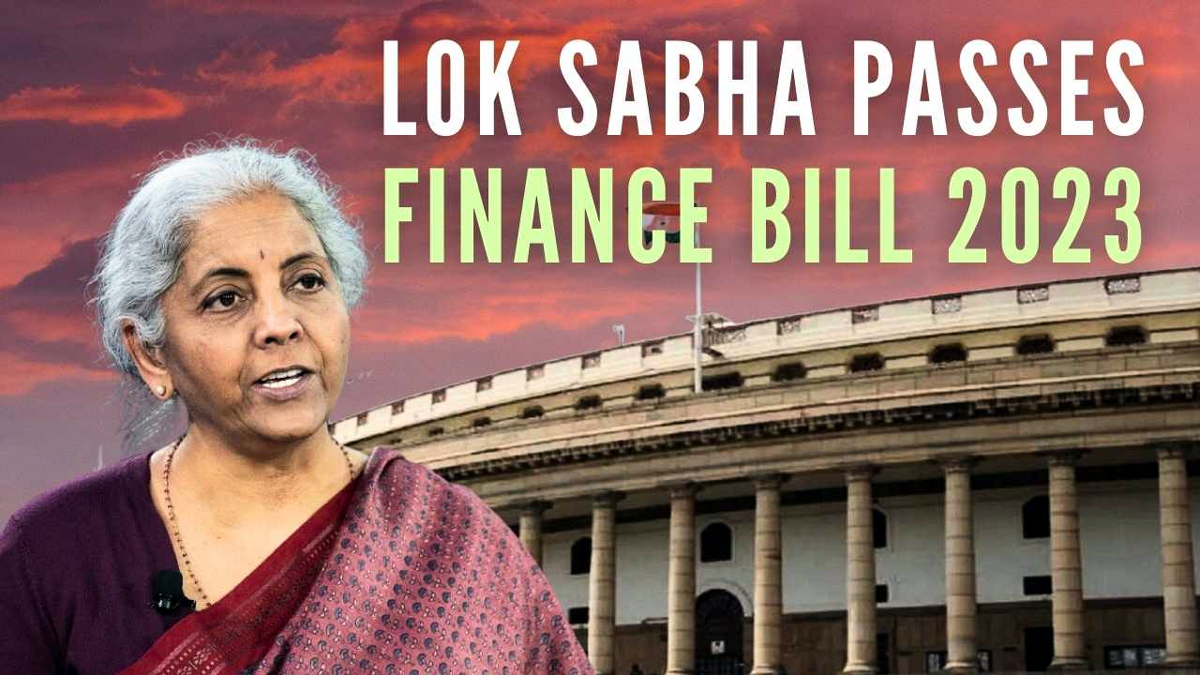NEW DELHI, Mar 24: The Lok Sabha today approved The Finance Bill 2023 with 64 official amendments including providing tax relief to some taxpayers opting for new tax regime, and removing long-term tax benefit for debt mutual funds to bring them at par with other interest earning instruments.
In a relief to taxpayers opting for deductions and exemption-free new tax regime, individuals earning marginally higher income than no-tax ceiling of Rs 7 lakh will continue to pay nil tax.
Under the new tax regime with effect from April 1, if a taxpayer has an annual income of Rs 7 lakh s/he pays no tax. But if s/he has income of Rs 7,00,100 s/he pays tax of Rs 25,010. Thus an additional income of Rs 100 leads to tax of Rs 25,010.
The amendment provides that the tax payable should not be more than the income that exceeds Rs 7 lakh. This means, an individual having income up to Rs 7,27,700 could stand to benefit from this marginal relief.
Other amendments include raising the tax rate on royalty and fee for technical services from 10 per cent to 20 per cent.
The Finance Bill, which includes tax proposals for the fiscal year beginning April 1, was passed without a discussion as parliament continued to remain stalled over demands for a probe into allegations against the Adani group.
Lok Sabha, which had on Thursday approved Rs 45 lakh-crore Budget for 2023-24 fiscal in just 9 minutes, passed the Finance Bill amid placards holding opposition MPs shouting slogans from the well of the House.
Finance minister Nirmala Sitharaman moved the Bill and the 64 amendments which were all approved by voice vote.
These will now go to Rajya Sabha and will become law once the President gives assent.
From April 1, investments in debt mutual funds will be taxed as short-term capital gains, stripping investors of the long-term tax benefits that made such investments popular.
Currently, investors in debt funds pay income tax on capital gains according to the income tax slab for a holding period of three years. After three years these funds pay either 20 per cent with indexation benefits or 10 per cent without indexation.
After the amendment, such gains from transfer of units of specified mutual funds will be treated as short term and taxed at slab rates.
This is in addition to taxation of market linked debenture proposed in the original bill.
Specified mutual funds have been defined to include funds where not more than 35 per cent of proceeds is invested in shares of domestic companies. This may include debt mutual funds and gold ETFs where investment in domestic companies is less than 35 per cent of proceeds of the fund.
The move will bring taxation of such mutual funds on par with bank deposits which are taxed at slab rates.
Finance secretary T V Somanathan said the move was aimed at bringing parity with instruments which are of a similar nature.
The government in 2014 had changed the taxation of debt mutual funds (period of holding for short term gains was increased to 3 years and tax rates were increased to 20 per cent).
Also, credit card payments for foreign travel will be brought under the purview of the Liberalised Remittance Scheme (LRS) of the Reserve Bank to ensure that such expenses do not escape TCS (Tax Collection at Source).
The Union Budget 2023 proposed a TCS for foreign outward remittance under LRS other than for education and medical purposes of 20 per cent applicable from July 1, 2023. Before this proposal, the TCS of 5 per cent was applicable on foreign outward remittances above Rs 7 lakh.
Tax Collected at Source (TCS) is an income tax, collected by the seller of specified goods, from the buyer. TCS is a concept where a person selling specific items is liable to collect tax from a buyer at a prescribed rate and deposit the same with the Government.(PTI)
Trending Now
E-Paper


